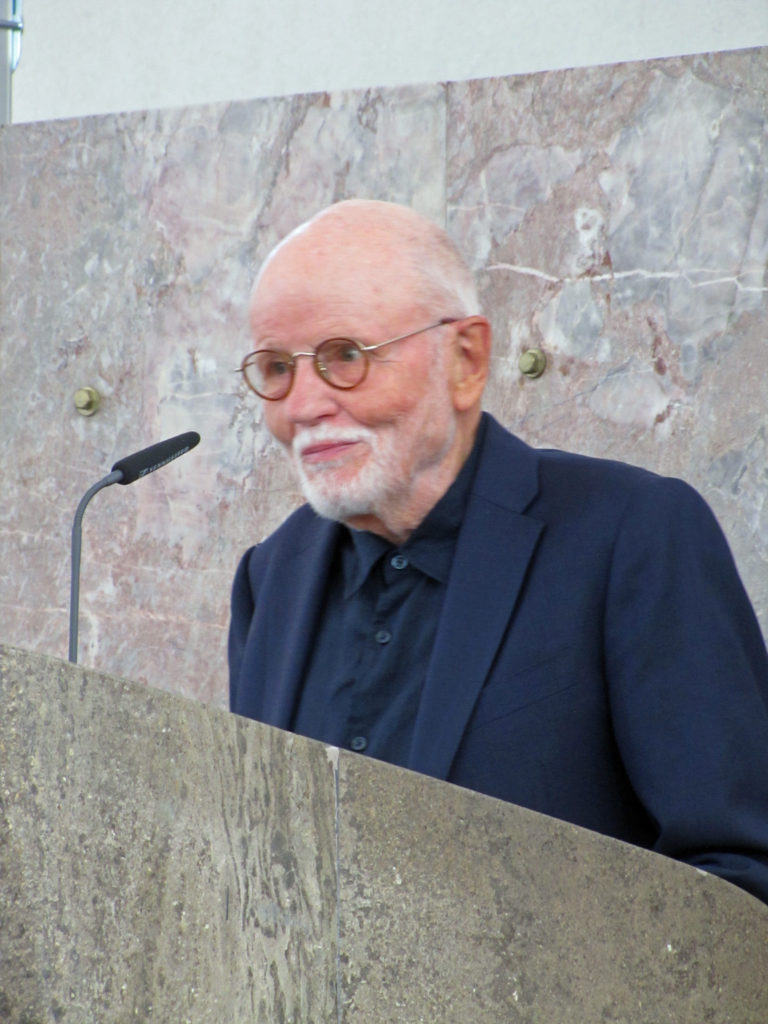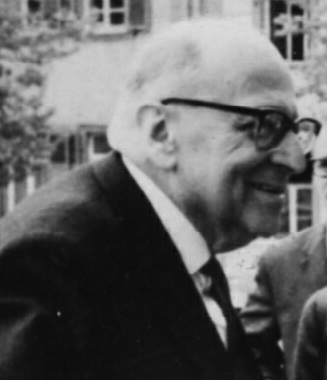Twentieth century sociology – made (mostly) in America
STODDARD MARTIN traces the American origins of
European social research
Transatlantic History of the Social Sciences: Robber Barons, the Third Reich and the Invention of Empirical Social Research
Christian Fleck (2007), trans. Helen Bleister (2011), London: Bloomsbury Academic, 2011, 256pp., US$65
After World War I, the Rockefeller Foundation (RF) distributed bounty in Europe to develop institutes, projects and seats in universities for study of those social matters gradually separating out into disciplines of psychology, economics, political science, social anthropology and sociology proper. Largesse was dispensed in a spirit of philanthropy typical of the progeny of ‘robber barons’. The Carnegie Foundation joined the RF in this pioneer work; neither was in bed yet with the US government, though both operated in harmony with Wilsonian ideals of a league of nations (which a conservative US Senate rejected) and Hooverian initiatives to feed, re-house and renovate lives of millions on the war-ravaged continent. Since much of the displacement/devastation had been in the centre of that continent and, as the Dawes Plan simultaneously recognized, the core of that centre was Germany (and to a lesser extent Austria), it is where the best efforts were focussed.
Money was spent, perhaps not quite consciously at first, to Americanize Germanic methods. Use of survey, interview and collection of data were introduced to buttress theory; collegial projects to supersede the Word of individual ‘genius’; democratized departments to supplant traditional cults of the magisterial professor. Reduction of Austria to a rump following the collapse of the Hapsburg empire made recruitment of interested academics there easier than in Germany proper – the Weimar Republic had inherited university structures largely intact from its Wilhelmine imperial predecessor. Nonetheless, German sociology, with traditions deriving from Max Weber among others, was soon penetrated by American interests too. Friends were made and scholars financed to travel to American universities, develop new programmes in their own or both. Being ostensibly non-political, initiatives carried on into the first years of Nazi power; then the darkening situation, especially after Anschluss in Austria, shut down and/or transplanted them to the States, where scores of German and particularly Austrian academic friends fled, Jews naturally prominent among them.
Among programmes that grew up coincidental to or in consequence of this process was the Princeton Radio Research Project (a misnomer, as it was run out of Newark and later Columbia Universities). Paul Lazarfeld was its head, its most famous contributor the sociological writer who styled himself Theodore Adorno. These two egotistical, sporadically paranoid émigrés forged an alliance – sometimes misalliance – to bring ‘American empiricism’ and ‘European theory’ together in order to assess the role of the new medium of radio in the lives of its listeners. ‘Who listens, When, How, and What to?’ American sponsors employed brilliant foreigners at half the price of native equivalents; brilliant foreigners penned proposals more and more padded to lure maximum dollars out of their hosts – a habit already formed by some in Europe during the pre-Nazi phase. One commentator would describe Lazarfeld as a “con-artist”; certainly Adorno capriciously pursued his own star, cultivating an old European profile as ‘genius’ to the extent that a credulous New World would allow. Setting these Machiavellian motives aside, what was accomplished?

Theodor Adorno
Quite a bit, it would seem, in analysis of effects and what was likely to cause them. Now familiar techniques were developed: panels of listeners, button-pushers and what we call ‘focus-groups’ to gauge what types of music were likely to lull, stimulate, infuriate or be turned off, or what types of voices would best appeal – the latter spelling an end for the intellectually superior type, the know-all, the stuffed shirt and the grumbler.
Beyond music and its commentators, such diagnostics aided in development of political prognostication – Gallup, Roper and Daniel Bell all worked on the fringes of the programme from time to time. General effects of media began to be predicted with as much acuity as by their contemporary magicker back in Germany, Josef Goebbels. Results could be provoked, Adorno would later remark, “according to the ideal of a skilled manipulation of the masses” with self-evidently “exploitative” or “benevolent” consequence.
The era of mass advertising and mass ‘fads’ was simultaneously growing up, with proliferation of new professions feeding it. The US War Information Office became involved; the RF was eclipsed as premier funder by the American Jewish Congress (AJC). Max Horkheimer became maestro of huge investigations into the nature of the authoritarian personality and typologies of anti-Semitism. Preferring California to New York, he manufactured health excuses to shift the centre of gravity west; Adorno attached himself to his burgeoning équipe, as did from time to time other ‘stars’ such as psychologist Erich Fromm and Marxist/Freudian philosopher Herbert Marcuse. New purpose suffused once supposedly objective research – there emerged a fine sense of The Enemy and of mentalities to be re-formed, if not extirpated, or at least marginalized. Horkheimer saw himself as directing a social research organization analogous to the scientific one developing the atomic bomb at Los Alamos; the shift in world morality it advanced, towards zero toleration of racism and prejudice, would arguably become a more potent force in post-war history.

If the cause was just, many of its promoters were all too human. Christian Fleck’s account of Horkheimer and Co. sometimes recalls the famous quip about academic disputes made by another émigré promoted via Rockefeller largesse: “The reason they are so vicious is because so little is at stake”. But Kissinger’s wit is not in Fleck’s bag of tricks. He plunges us into tables comparing salaries, publication rates, recognition status – measures that today boil down to the number of clicks a name gets on the net. Possibilities for distortion were present then as now. On collective publications, which most projects spawned, the author listed first often became the one it was known by; thus Adorno’s profile was artificially raised. Networking helped, not least among émigrés, especially those associated with the RF or AJC; elements of European prejudice persisted, Germans whether Jewish or not displaying traditional de haut en bas towards Czechs, Romanians or refugees from other ‘less advanced’ cultures. Vienna was top among origins for some, despite or perhaps because of that place’s dramatic decline; among those combating ‘the authoritarian character structure’ or ‘psycho-dynamics of anti-Semitic disease’, it was not hard to spot traits that might have jumped off a page of Elias Canetti’s 1936 novel about the city’s un-sacred monsters, Die Blendung (Auto-da-Fé).
After World War II, many players went back to Europe, either with sponsorship or by choice or both. The RF by now was working in concert with U.S. government agencies, as were Carnegie, Ford and other foundations; occasionally, as Frances Stonor Saunders showed in Who Paid the Piper? (2001), they operated as fronts for schemes directed by the CIA. From initial post-war days of the Control Commission in Berlin, planning and implementation of a new world order progressed. Techniques of the diagnosticians were applied: profiling, acquisition of assets (i.e., competent, loyal friends), re-education. Social sciences, seen as having suffered more than any other individual disciplines under Nazi rule, were ‘rebuilt’, though in Austria they were allowed to slide back into a pre-war condition, Americans apparently believing a self-serving native line that that country had been ‘the first victim’ of Nazi expansion. Proud as some were to have come from Vienna in the first place, few were eager to return to the rump of a heimat, ensconced as they now were on cushy American campuses.
As Germany prospered, its homecomers increased. By the early 1950s Friedrich Pollock, Adorno and Horkheimer himself were back. Frankfurt was chief beneficiary of the reflux; its Institut für Sozialforschung re-arose. Berlin was another: by the Sixties, it boasted the Max-Planck Institut für Bildungsforschung. Women ranked low in these new citadels of social engineering, nor had all the old vices vanished – hyper-reverence for authority, theory and ‘genius’. But data collection was now implanted in the system, modes of analysis imported and refined, tools by which to bolster a new ‘social market’ economy and order, user-friendly, open to continuous modification, embedded with and within desires and anxieties of a ‘reoriented’ Volk. What ‘robber barons’ had incepted, a new Europe inherited. Since as early as 1913 American per capita GNP was 50% higher than that of developed Europe (by 1950 it was double), it is no surprise that the flow should have been in this direction. However, as Fleck points out, by the end of the 20th century the discrepancy was back to a 1913 level and “other indications going in the same direction”. So what now? What to come?
Libertarians and radicals fret. Thirty or more years ago as the above process proceeded, rhetoric could be heard in the States about the supposed hegemony of the Trilateral Commission, a group set up by David Rockefeller to bring together leaders from the then most powerful nations: the U.S.A., rebuilt Europe and Japan. Disquiet was voiced about how this directorate shaped events, advancing its protégés Carter and Bush at home and equivalents abroad. Who rules the world, it was asked, and to what end? In those days it was defeat of Communism, which succeeded. But afterwards? Some wonder still: who advises our masters? What scientist-geniuses are employed by Metropolis-style bosses to maintain sway over the suggestible mass? How different is their mentality of control from that which devised bread and circuses for denizens of totalitarian states we opposed, how much less eager to root out an enemy within? Doesn’t mentality of control carry bacilli of paranoia in it? Didn’t the sociologists of Fleck’s study flourish in an era that also produced Joe McCarthy?
It was an era sufficiently ‘plastic’ – i.e., opposed to man’s organic nature and freedom – that male babies were customarily mutilated – i.e., circumcised – on hygienic grounds later found to be bogus. Along with their younger sisters, they were fed on powdered formula in preference to breast milk so their mothers could preserve whatever in padded push-ups to rise to a level of desirable womanhood as advertised by iconic Ja(y)nes, Russell and Mansfield. No wonder the 1960s brought revolt in the form of bra-burning, let-it-all-hang-out hippies, descendants of Nietzschean Wandervogel and Kibbo Kift kindred of the European 1920s. But the drive to assess and direct individual activity in the name of social cohesion, order and marketing carried on, made easier finally by mass tracking of credit card transactions, Oyster travel and personal e-mail. It is after all an instinct as old as the king or his spies going in disguise among the people to hear their complaints and deal with them.
Libertarians know that cherished freedoms can only be protected by perpetual vigilance. Our present masters and their social diagnosticians preside over a world in which a perhaps unforeseen consequence has been to generate an echelon of individuals whose principal urge is to evade, slip out of the net, hide away, change locale and/or identity, adopt a low profile – do whatever is necessary to pass under the radar of what for them has come to seem a near universal control industry. Totalitarian China is this new age’s premier success story; yet it must co-exist with a rival phenomenon equally characteristic of the age – the neo-robber barons, oligarchs, tax-haveneers, commodity speculators and their unwitting (perhaps witting?) foot-soldiers: terrorists who shelter in a proliferating list of ‘failed states’. What answers do the messianic data-gatherers and mind-benders have in this situation for we simple bürgers, if any of us honestly still exist?
Dr. STODDARD MARTIN is the author of numerous books on 19th and 20th century thinkers











I enjoy, result in I found just what I was looking for.
You have ended my four day long hunt! God Bless you man. Have a
great day. Bye